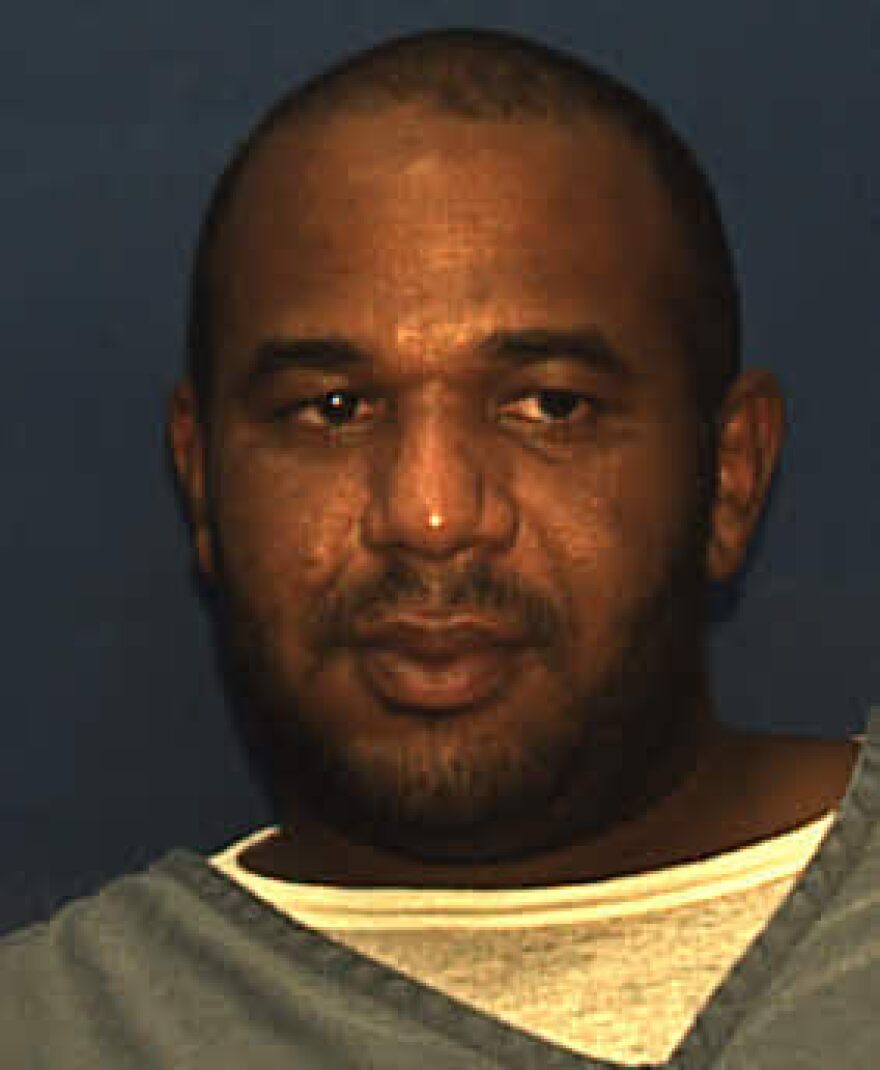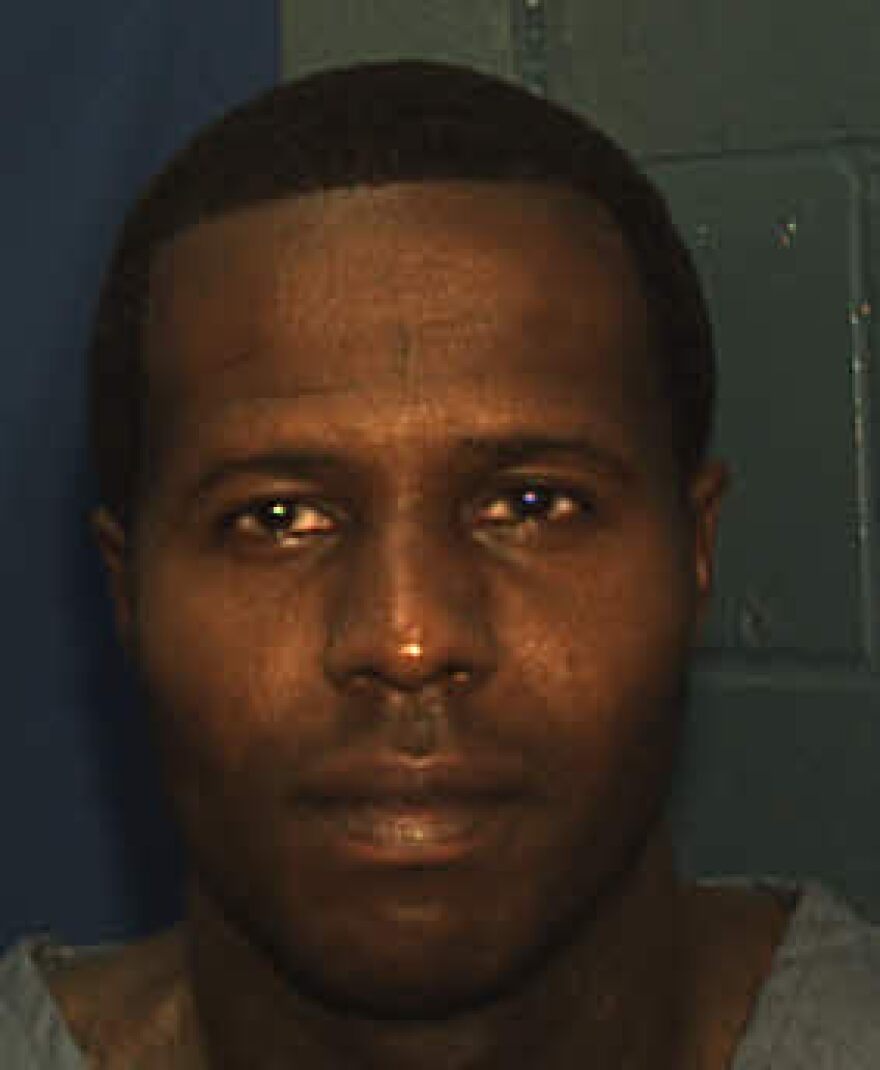Updated: The two were caught two days later.
ORLANDO, Fla. (AP) — At first glance, the paperwork ordering the release of two convicted murderers serving life sentences in a Florida prison looked legitimate.
So the guards at Franklin Correctional Institution in the Florida Panhandle put one of the men on a bus and opened the gates for the other to ride away with family. Authorities now say prison officials were duped by the court documents, which included a fake motion from a prosecutor and a judge's forged signature.
As prison officials, prosecutors and courts across the state scrambled to make sure no one else had been mistakenly released, police were searching for the two men who already had a head start. Joseph Jenkins was let out Sept. 27, and Charles Walker was freed Oct. 8.
Prisoners have had varying success trying to use bogus documents to escape. Many forgeries are discovered early, but there have been cases where inmates walk free.
In the Florida case, Chief Circuit Judge Belvin Perry said Thursday there were several red flags that should have attracted the attention of the court clerk's office or the Corrections Department. Namely, it's rare for a judge to order a sentence reduction, and even more uncommon for the request to come from prosecutors.
"One of the things we have never taken a close look at is the verification of a particular document to make sure it's the real McCoy," said Perry, whose name was forged on the paperwork. "I knew that that was always a possibility, but you never want that possibility occurring in the way that it did."
Jenkins, 34, was found guilty of first-degree murder in the 1998 killing and botched robbery of Roscoe Pugh, an Orlando man.
State Attorney Jeffrey Ashton said he learned Jenkins had been released when Pugh's family contacted his office. They reviewed the paperwork and found that it was a fake, then notified law enforcement. Later, they discovered Walker's release documents were also bogus. The paperwork also forged prosecutors' signatures, Ashton said.
It wasn't clear exactly who dummied up the paperwork or if the two cases were connected.
Upon hearing of Jenkins' release, his former attorney, Bob Wesley, said he was sure "it wasn't a cunning master plan."
Wesley, now the public defender for metro Orlando, recalled his client's crime and said Jenkins broke into a home of someone he knew and was "not smart enough to pull his ski mask down."
Walker was convicted of second-degree murder in a 1999 slaying in Orange County. He told investigators that 23-year-old Cedric Slater was bullying him and he fired three shots intending to scare him.
Walker's then-defense attorney, Robert LeBlanc, now a judge in Orlando, refused to comment.
Department of Corrections spokeswoman Misty Cash didn't know which prisoner had been dropped off at the bus station, but said officials routinely work with inmates who are getting out.
"If they need a bus ticket, we'll provide that for them," she said.
In a statement, Corrections Secretary Michael Crews said his agency was reviewing records to make sure no other inmates had been released in a similar fashion. The agency said later Thursday it verified the prisoners' release information with the clerk's office, though this could have been done by checking the court's website or contacting the office directly. The statement didn't say which one the agency did.
Ashton said another man serving a life sentence for attempting to kill a law enforcement officer was also scheduled to be released using forged documents, but an investigator discovered the scheme in the spring before he was freed.
Other inmates have escaped with fake paperwork. In 2010, a Wisconsin killer forged documents that shortened his prison sentence and he walked free. He was captured a week later. In 2012, a prisoner in Pennsylvania was let out with bogus court documents and the mistake wasn't discovered until more than three months later.
Florida state Rep. Darryl Rouson, the Democratic ranking member of the House Justice Appropriations Subcommittee, said the Legislature should hold hearings to examine the agency's procedures.
"This is unconscionable, almost unthinkable," said Rouson, a St. Petersburg lawyer.
Republican Gov. Rick Scott said he was focused on the manhunt.
"The first thing you do when something like this happens is solve the problem you have at hand," he said. "We need to apprehend these individuals and that's what we're doing."
In both cases, the forged paperwork included motions from prosecutors to correct "illegal" sentences, accompanied by orders allegedly filed by Perry within the last couple of months. The orders granted a 15-year sentence. Perry is best known for presiding over the Casey Anthony murder trial in 2011.
Leesa Bainbridge, a spokeswoman for the Orange County Clerk of Courts, said the office moves thousands of pages of court documents a day and currently has no way of authenticating those that pass through to other agencies.
"We're kind of like the post office," Bainbridge said. "It comes in and we move it along."
Bainbridge said officials in the clerk's office plan to talk about what measures, if any, can be put in place to make sure something similar doesn't happen again.
"This is something we take very seriously," she said. "We don't find this funny."
Perry said changing the type of paper orders are printed on, or requiring a phone call to the judge's office could help. More technologically advanced measures may have to be implemented as Florida's court system finishes transitioning into a paperless system, he said.
"I think this will open that discussion," Perry said.


